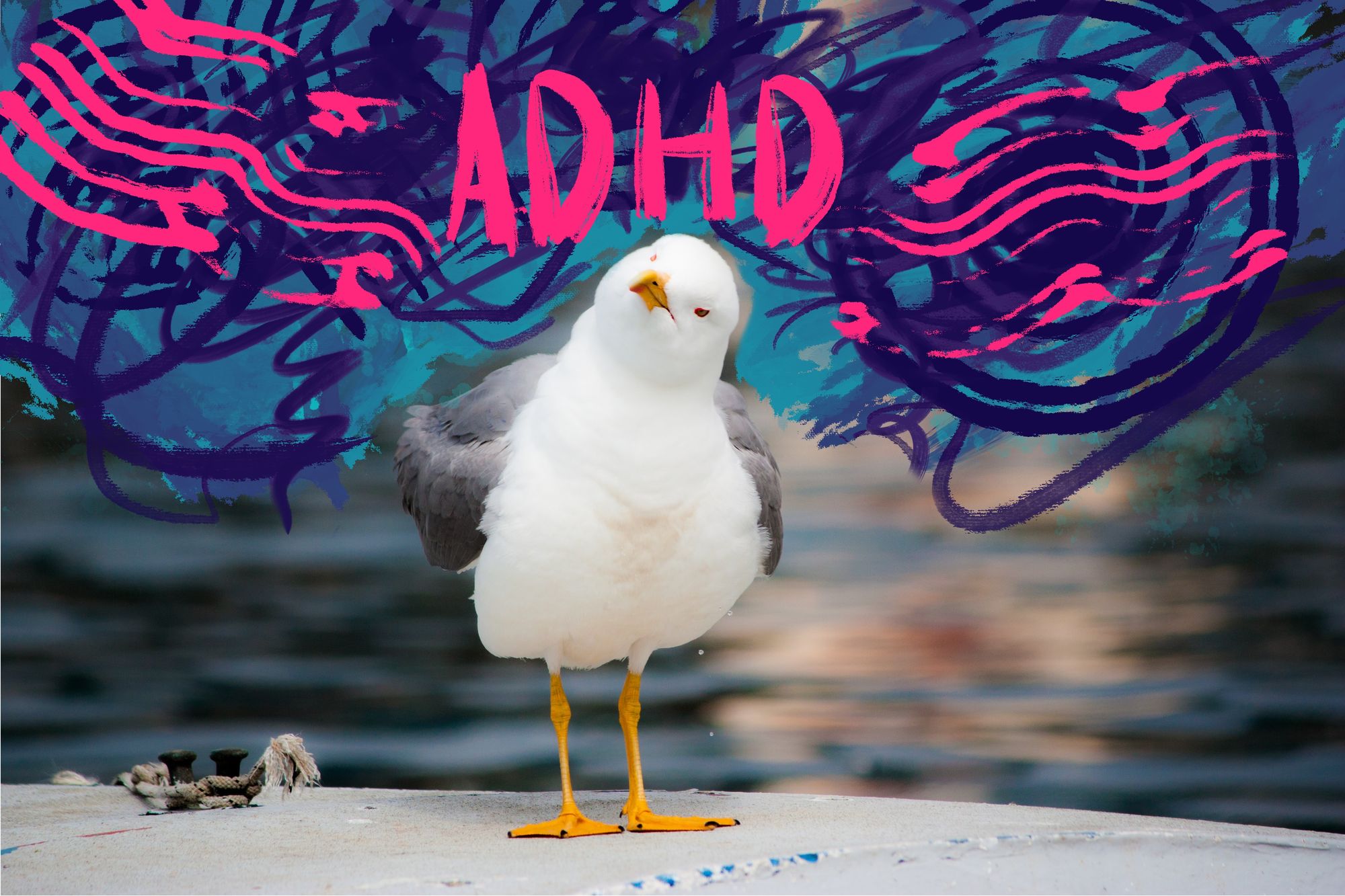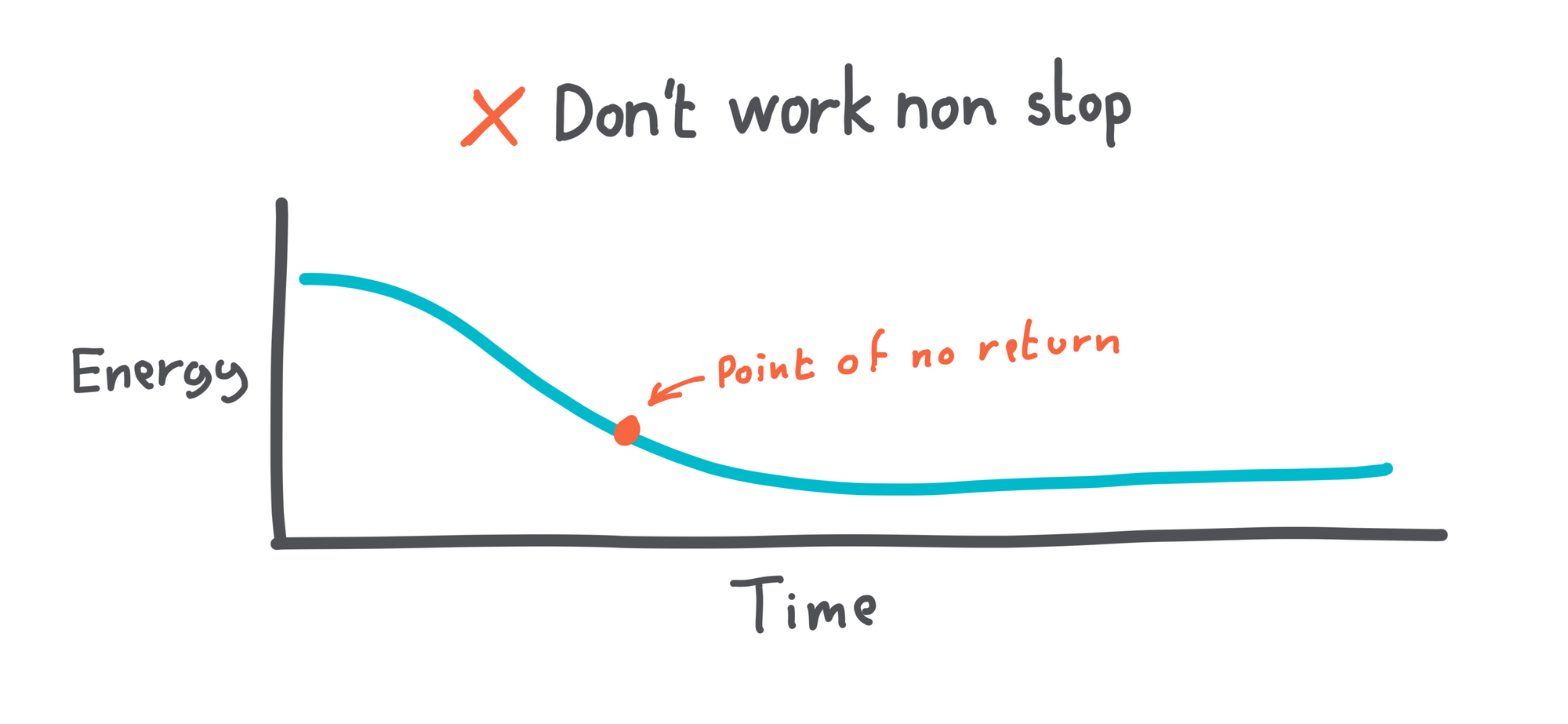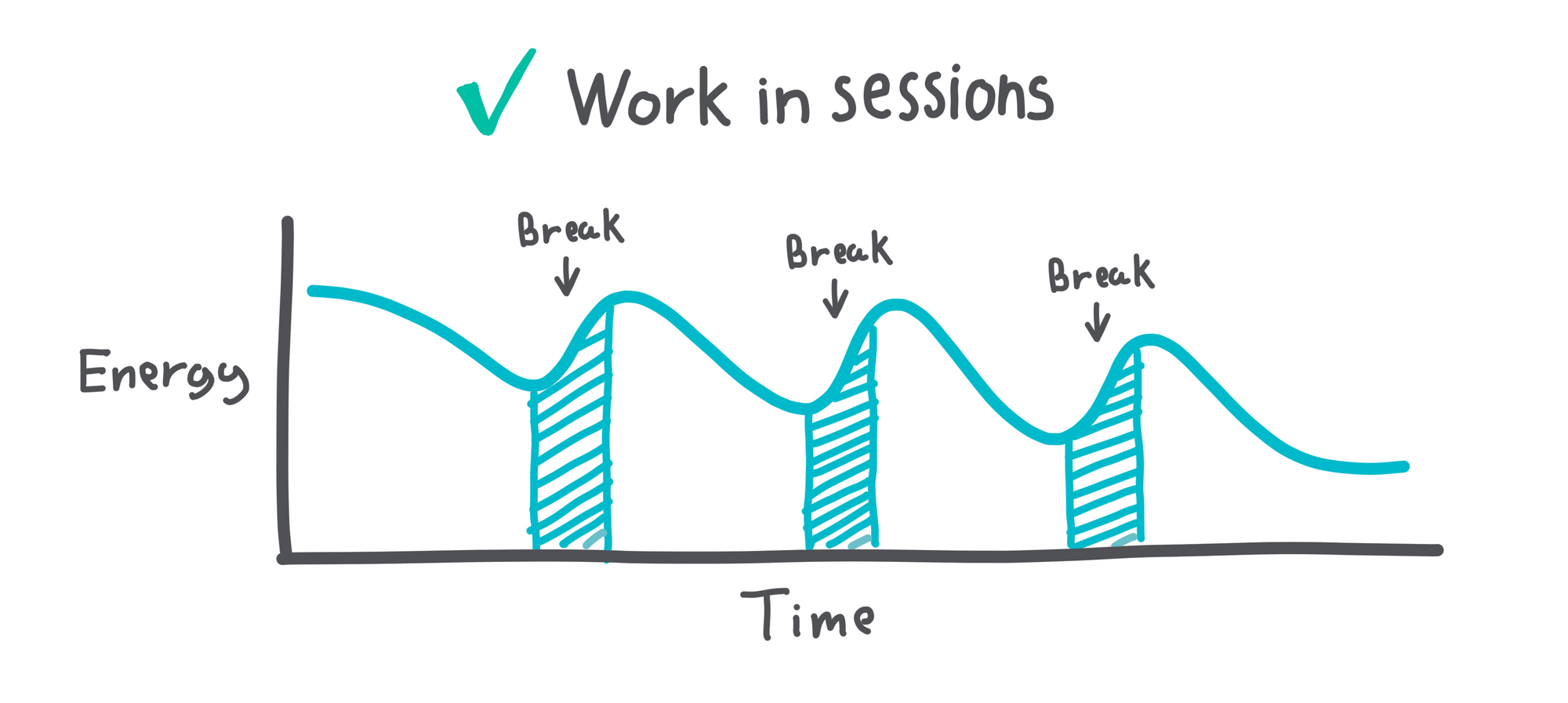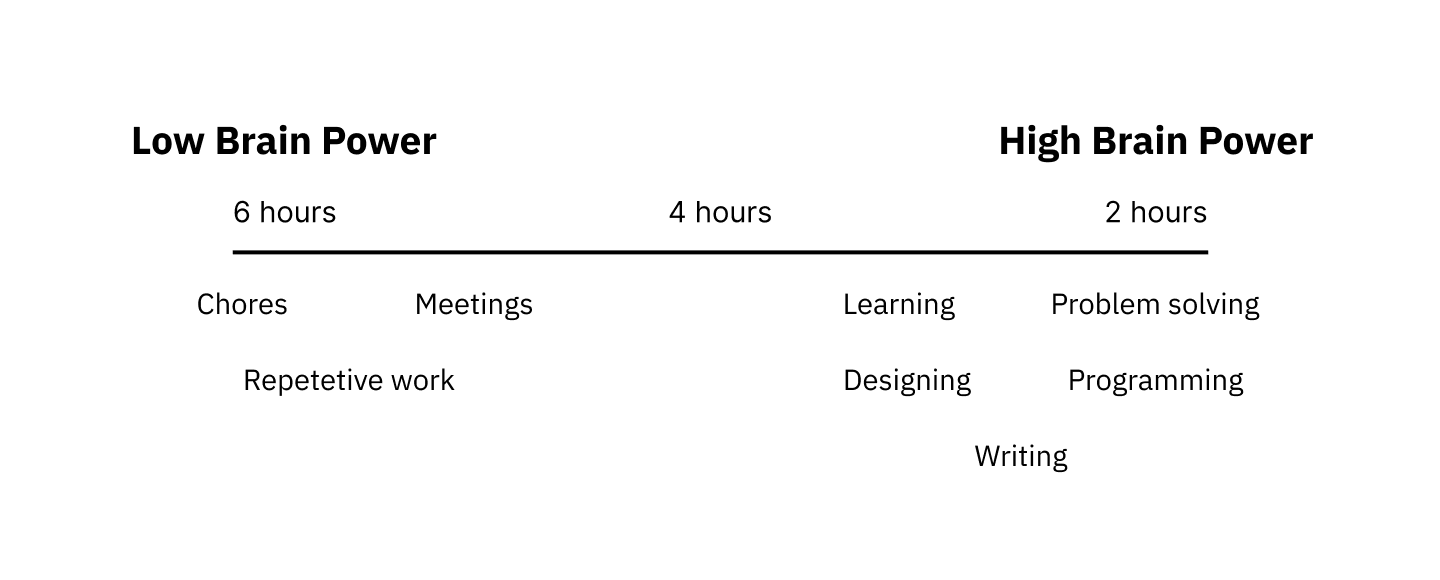My most helpful strategies for mastering ADHD
From the Unschedule to working in 50-minute sessions, find out what strategies have helped me the most in my journey with ADHD.

It can be downright awful for people with ADHD to get things done in the modern world. Most jobs require a lot of focus and attention to detail, which is the Achilles heel for people with ADHD. It's like the odds are stacked against us. It's no wonder it's quite normal to feel like you're always behind and constantly burnt out.
I've always had ADHD, but I only found out when I was 31. Once I knew what my challenge was, I could start finding ways to cope. I began to understand my mind better and found ways to reduce the guilt and anxiety and reach an average level of productivity.
I have done several hundred hours of research and spent years experimenting with how to manage my ADHD better, and in this article, I will share what has helped me the most. I hope this will help you by giving you some direction and resources to get started.
The Unschedule
For people with ADHD, it's normal to postpone work until the last minute, only to hyperfocus and work so hard that it's unhealthy. Often at the cost of social life and your mental health.
Of course, I knew logically that the solution was to simply "start work sooner." But for an ADHD brain, thinking that doesn't help one bit. You need to "feel" the urgency to get started to get any effect.
I found that an excellent method to get this feeling of urgency was using an “unschedule” calendar. This is a concept from the book: "The Now Habit" by Neil A. Fiore.
The Unschedule calendar is the opposite of other recommendations for managing your time. Instead of time-blocking hours for work, it tells you to time-block everything else you have to do that day, such as eating, commuting, and meetings. And the things you want to have time for to live a life you feel is worth living, such as leisure, socializing, walks, and reading.

Seeing my schedule laid out this way helped me become painfully aware of how little time I actually had to get work done. And gave me an intuitive sense of urgency to do stuff now when I "still had the time."
For an in-depth guide on how to use the unschedule calendar, I recommend the book The Now Habit or this article, that's a great free alternative.
If you want to try it out for yourself, here's my template in google sheets to help you get started.

I used the unschedule calendar for about five weeks. After that, I stopped using it because I felt I had gotten an intuitive understanding of how limited my time is, and therefore, I had no utility from it anymore.
Work in 50-minute sessions
It's common for people with ADHD to get lost in the flow and work for long hours without taking breaks. However, working for too long without rest depletes your brain's nutrients so low that it becomes exhausted. And an exhausted brain can't do any more meaningful work that day, even with rest. I like to call it the "Point of no return."

When you deplete yourself to the point of no return, you can get exhausted for the entire day, just by working 2 hours in the morning. The brain needs rest, but the problem is that the hyperfocus of ADHD brains is so strong that all-natural urges of the body are suppressed. It feels no hunger and thirst, hears no sounds, and most importantly does not notice how tired it is. This deep focus, makes it too easy to push on until our brain has used up all of its reserves.
However, I now know that if I work too hard, I won't be able to work at all. So I try to work around this problem.
How to work in 50-minute sessions
I've found that working in 50-minute sessions, and taking healthy breaks has helped my brain feel rested and fresh. And by working in sessions, I now get more work done without feeling terrible the rest of the day.

A session is 50 minutes of work, followed by 20 minutes of rest. This ratio of work vs. rest is the best way to avoid depletion because more than 50 minutes depletes your brain energy so much that it's hard to recover.
It may sound much with a 20-minute break every 50 minutes. But at least for me, this is the minimum time I need to recover. However, I usually take breaks that are longer than 20 minutes. Because I aim for three sessions a day, and I like to spread those sessions across the day.
After working this way for two years now, I have gotten more work done than before. All while I am feeling more relaxed.
Take a low brainpower break
When it's time for a break, I find it's essential to do something that won't be too taxing on your brain. So, I avoid anything that requires a lot of thought or focus. Instead, do something simple and easy, like chores, talking to a friend, having coffee with a colleague, or going for a walk. This way, your brain can rest and be ready for the next session.
Set a 10-minute timer if you feel it's hard to get started
I set a timer for just 10 minutes when I'm struggling to start something. Usually, I get into what I'm doing, and the 10 minutes pass without me noticing, but if I don't get into it, it's okay to take a break.
A short initial timer is a helpful way to combat the brain's natural tendency to resist committing to a long and tedious work session, which can be especially hard for an ADHD brain.
How many hours work in a day
I have found that the number of hours I can work in a day depends on the type of work I do. If I do something that requires a lot of thinking, like learning new things, writing or designing, I can only do three sessions in a day. However, if I do something that isn't very demanding, like accounting or cleaning the house, I can easily do five hours or more in a day.

In general, the more brainpower required for the work, the fewer hours you can expect to work each day. It seems the limiting factor is your mental energy, not time.
And if you feel guilty for only working a few hours each day, don't worry. Studies show that most knowledge workers are only productive for about three hours a day. I used to feel guilty about only being productive a few hours a day too until I realized that it's just a fact of human nature.
Now I work in 50-minute sessions, limit my hours worked in a day, and take healthy breaks. These changes have helped me manage my ADHD and become at least as productive as most people.
ADHD medication
Medication helped a ton for me. My doctor prescribed me Ritalin, and it has been a true lifesaver. Without it, it would be a lot harder to start exercising, implement new healthy routines, read books to learn how to cope with ADHD, and simply get work done at all.
However, after implementing a lot of these things I mentioned in this article, which I couldn't have done without the help of Ritalin, I now need Ritalin less and have stopped using it. I stopped because anxiety worsened as a side-effect of Ritalin, which outweighed the positive benefits.
I'm not saying that people should not take ADHD medication. In fact, I strongly feel exactly the opposite. Why struggle with your ADHD symptoms for years when a safe and tested medication can help most people get there in minutes.
Mindfulness for ADHD brains
I was surprised when I found out that mindfulness can help me with my ADHD. I used to think that mindfulness was impossible with an ADHD brain, but after trying it for a couple of weeks, I realized it's a bonafide mind hack!
It lets me calm down my racing mind and choose not to think and feel things I don't want to. Magic!
Mindfulness is the practice of being present in the moment. You focus on sensations such as your breath, and when your mind starts to wander, you bring your attention back to your sensations. With practice, you get better at it with practice, and fewer thoughts bubble up.
For me, it took two weeks before I started to see some improvement. And now when I get unwanted emotions like anxiety or worry, I try to focus on my sensations and breathe slowly. This usually makes me feel better in just 5 minutes.
I have also noticed that I have less of an urge to check my phone constantly, and I feel my days last longer.
I still have a way to go, but I really believe that with enough practice, I can ultimately slow down my brain and relieve myself of racing thoughts and the uncomfortable drive to always "do" something.
Regular mindfulness is too hard for ADHD brains
I find it hard to be mindful when I'm just sitting still, focusing on my breath for an extended period. My brain gets bored right away and starts thinking of other things.
I found It's easier for me to be mindful when I'm doing something. And do shorter sessions of just a minute or two. I call it "doing things slow on purpose."
For example, when I make coffee in the morning, I focus on the sensations in each step: the coldness of the water faucet as I turn it on, the sound of the water hitting the basin, the weight of the coffee reservoir as I fill it up, the smell of the coffee as the machine starts to pour.
So if you think sitting still for 15 minutes is hard (like many with ADHD do). Try to do shorter sessions, and be mindful when doing some activity.
Mindfulness exercises to get you started
Here's a list of the most common scenarios I use to practice mindfulness that can help you get started.
- When you step outside, stop for 20 seconds, notice the sensation of the air on your skin, the sounds around you, and take in the sights around you.
- While eating, notice each bite's taste, texture, and temperature.
- While taking a shower, be mindful of the feel of the water on your skin, the smell of the soap, and the sound of the water.
- While walking, notice the sensation of your feet hitting the ground, the sights and sounds around you, and the feel of the air on your skin.
- While talking to someone, really pay attention to what they're saying and how they're saying it, instead of thinking about what you're going to say next.
- While lying in bed, be mindful of the feel of the sheets, the sound of your breath, and the thoughts running through your head.
Books I recommend on mindfulness


Anxiety, ADHD's best friend
Anxiety and ADHD often go together. About half of adults with ADHD also have an anxiety disorder. And having ADHD at the same time as anxiety is like going from hard mode to extreme.
For me, working on my anxiety has helped a lot. My anxiety made me afraid of failing, needing everything to be perfect, and constantly comparing myself to others.
These things make it hard to start work. And once I did start, I would second-guess myself and give up. Getting things done when feeling like this is very tiring. And an overactive ADHD brain that's non-stop thinking about these things is even more tiring.
How I work on reducing my anxiety
Luckily, I have found a couple of things that have helped reduce my anxiety quite a lot. These include;
- regular exercise,
- a perceptual shift in how I view myself and the world.
- mindfulness and meditation (like mentioned in the section above 👆)
Regular exercise
Exercise is actually very effective against anxiety, and studies show that it can be equally effective as anxiety medicine. That's incredible!
I only do a little bit of exercise each day, but it's enough to help reduce my anxiety.
I have found it doesn't take much exercise to feel better. I do 15 minutes of exercise each morning, and I try to take a short walk each day. This activity is enough to trick my brain into releasing those sweet brain chemicals that reduce my anxiety.
However, the hard part with ADHD is actually getting started with a workout habit. How to get started is too much for me to explain in this article. But, I will post a separate article on how I finally got started with exercise, complete with my workout plan and my "don't break the chain template." I will link it here when It's ready.
A perceptual shift in how you view the world
It may sound weird to you when I say, "Changed my view on the world." But what I mean is that:
- I see the thoughts and emotions my brain produces as separate from myself.
When emotions and thoughts appear inside our heads, it's just a result of the automatic processes in our brain. These automated processes work great for most people and are helpful for typical situations, but for many reasons, these processes can be based on models that are defective and not helpful at all. One thing that typically makes faulty models is a challenging childhood. So, It's okay to view the thoughts and emotions that pop up in your head up as mere suggestions, that doesn't necessarily reflect the real world. - I don't see myself in competition with others.
When you stop comparing yourself to others, you remove your fear of feeling inferior. This also removes much of the anxiety caused by perfectionism and the fear of being "worse." However, changing this view is probably difficult for many. It sure was for me! After all, we live in a society where we're taught to work ourselves to the bone, all in the name of "status".
I wish I could tell you exactly what you needed to hear to change your perspective of the world, but there is no one-size-fits-all answer to this question, and everyone will find their own shift of perspective through different means.
To start, I recommend immersing yourself in topics like philosophy, psychology, or perhaps Buddhism until you find what "resonates" with you.
That said, these are the books that influenced me the most. And perhaps, they can help you out as well.
The philosofical book

The Courage to Be Disliked has had a profound impact on how I think about myself and others. It helped me a lot in terms of learning to accept myself for who I am and not caring about what other people think of me.
The technical book

I recommend this book if you want to get technical about how anxiousness works, why it exists, and what you can do about it.
The practical book

The book Burnout is written for women but can be helpful for men too. It tells relatable examples of common stress in society and how our brain reacts to them. And it explains ways to reduce stress and anxiety in a practical manner. Of the many "anti-stress" books, this is the one I come back to.
The Our brain is just a computer approach

If you want to understand the nature of your emotions and thoughts better, listen to this podcast. It helped me understand the separation of thoughts and emotions better than Buddism did.
I hope this article has helped to give you some insight and strategies for managing your ADHD. I know that it can be a challenge, but it is definitely possible to live a successful and fulfilling life with this condition. Just remember to be patient with yourself, and to find what works best for you.
If you have any questions or feedback about this article, please don't hesitate to contact me. I'm always happy to help out however I can!


